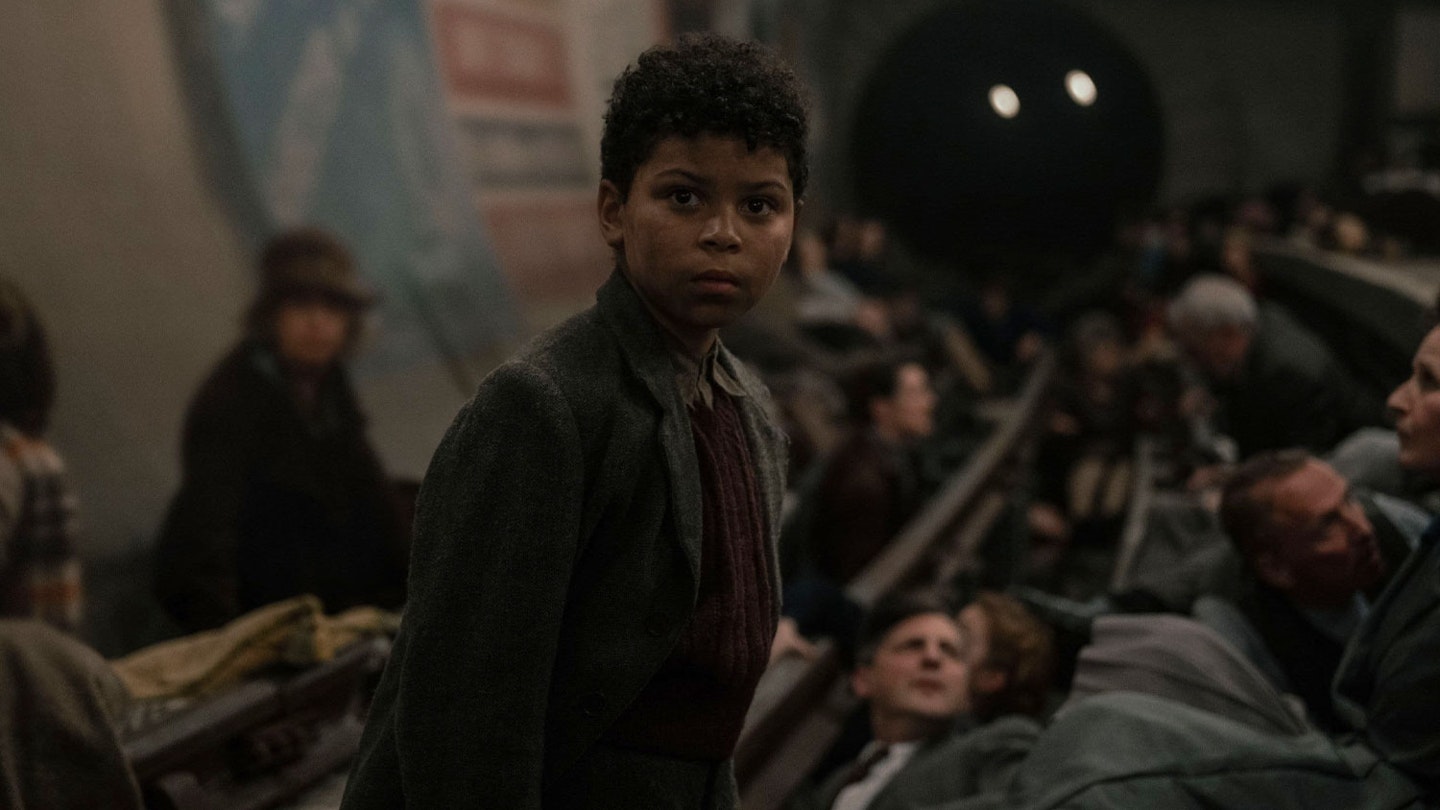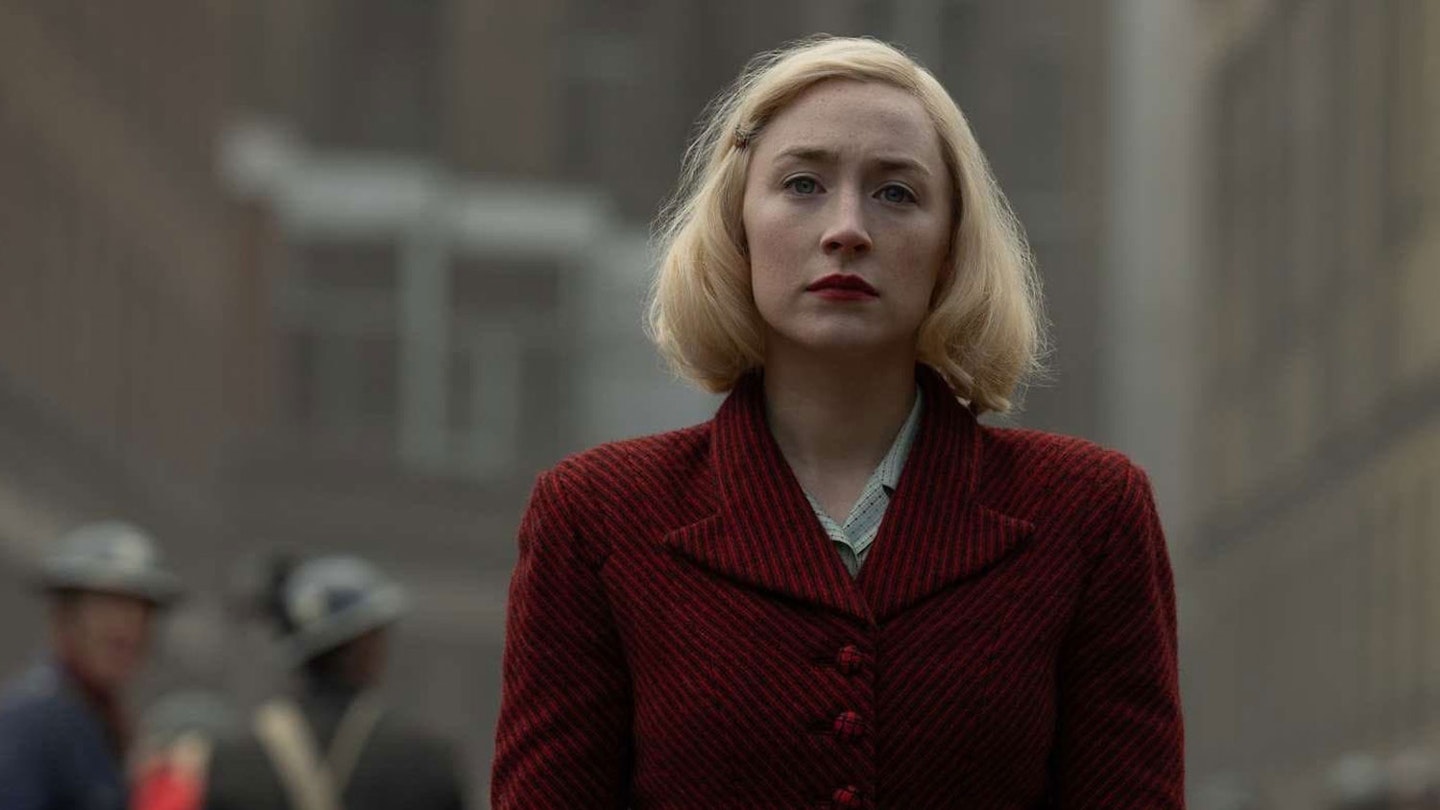There’s a scene early on in Steve McQueen’s Blitz in which Rita (Saoirse Ronan), a munitions-factory worker with a talent for singing, reluctantly packs off her young, mixed-race son George (Elliott Heffernan) to the countryside to avoid the horrors of continuous bombing. It’s a scenario we have seen a million times before — a tearful train-station goodbye — but McQueen makes it heart-rending. Over its two-hour running time, Blitz pulls off this trick constantly. Seen through McQueen’s vibrant but clear-eyed lens, it takes stock situations from countless creaky black-and-white films and makes them feel raw, real and fresh.

The story starts with the ferocity of D-Day: Saving Private Ryan transported to Stepney Green. In the aftermath of a night-time Luftwaffe bombing sortie, firefighters are struggling to contain a raging blaze (think battling Drogon with a couple of pails of water). At one point, a canvas hose escapes from a fireman’s clutches, knocks him unconscious and starts writhing around like a vicious serpent. It’s at once brutal and beautiful, an intoxicating vision of World War II on the homefront.
Out of the carnage, a simple story emerges, flitting between the perspectives of George and Rita. From the moment George decides to alight that moving train, Blitz flirts with becoming a fable. There’s train-top shenanigans, a run-in with a gang of broadly drawn Dickensian looters (Stephen Graham and Kathy Burke), and a flooded Underground station. This series of adventures can feel a tad baggy as the picaresque journey goes on, but it’s almost always gripping.
Saoirse Ronan is at the top of her game.
Most movingly, George is on a voyage of self-discovery concerning his ancestry. He meets Ife (Benjamin Clementine, winning and warm), a Nigerian air-raid warden who catches him in a posh arcade looking at dioramas of colonial atrocities demonising Africans as savages. George has consistently experienced racist taunts, but under Ife’s gentle tutelage he movingly begins to find pride in his heritage.
Rita, meanwhile, is trying to find purpose without her son and volunteers at a community shelter for the displaced. Without ever being trite, McQueen captures the Blitz spirit, how war inspires a sense of togetherness and belonging. Proving we are perhaps not as forward-thinking as we think we are, Blitz not only depicts ’40s London as a vibrant cultural melting pot but also reveals women as trailblazers, be it in activism, protesting the lack of safe shelters, or paving the way for the sexual liberation we traditionally associate with the ’60s.

While his film invokes the greats of British cinema — the fire-fighting faces of documentarian Humphrey Jennings, the decency of Powell & Pressburger, the pub sing-a-longs of Terence Davies — McQueen finds a language all his own. He transforms the waves of the Thames as seen from German bombers into almost animated abstraction. Grainy imagery of flowers punctuates the action, gentle and elegiac. Perhaps most impressive is a montage of bomb-making, Hans Zimmer’s music blurring with the mechanical rhythms of the machinery — the irony of Rita collaborating on instruments of death is not lost on the filmmaker.
As with McQueen’s other films, music plays a big part throughout. It creates poignant moments of family intimacy, as when Rita, George and his grandfather (an effective Paul Weller, who, at one point, is literally going underground) sing ‘Ain’t Misbehavin’’ around the old Joanna. It provides a source of national comfort as Rita performs in a BBC broadcast from her factory. And it delivers an outlet for joy in the darkest circumstances. When the film flashes back to Rita meeting George’s father Marcus (CJ Beckford), McQueen mounts a hot club scene, a fantastic inter-racial dance sequence full of sexiness and energy. Later, he throws us unexpectedly into a kick-ass big-band number at the Café de Paris, a subterranean space safe from falling bombs. The reveal as to why we are there is shattering.
Blitz sees Saoirse Ronan at the top of her game, delivering heart and steel in a pitch-perfect East End accent. But the film mostly rests on the shoulders of young Elliott Heffernan, who mixes vim and vigour with moments of stillness, conveying tons by doing very little. Rita is broken when she is forced to send her son away and, by the final reel, Ronan, Heffernan and McQueen will break you too.





